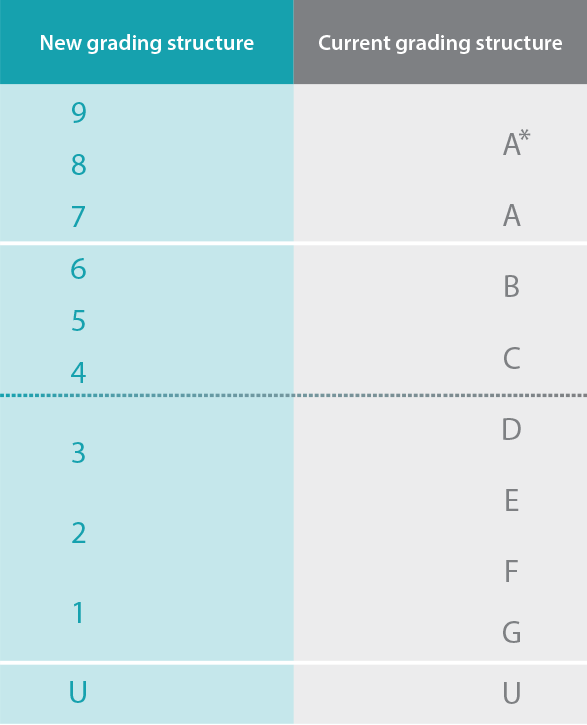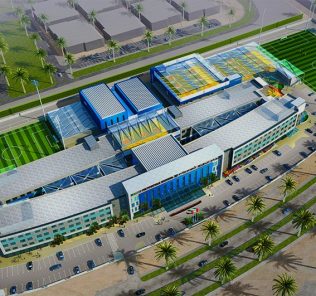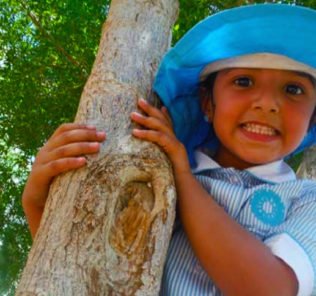Your Guide to GCSEs in the UAE: Choosing subjects; which UAE schools offer what; iGCSES, exam boards and grading systems explained
Choosing your GCSE or iGCSE subjects in the UAE? If you’re studying at a British-curriculum school in the emirates, GCSEs or iGCSEs will be the first big exams that you sit, and the first internationally recognised qualifications to populate your CV. And, while university and the world of work might seem like light years away, GCSEs are the first paving stones on your future career and life path, so it’s worth giving the subjects you choose some serious consideration.
But how much choice is there in the subjects your take at GCSE? Should you pick only options that you think will be useful later, or can you afford to choose the subjects you’re really passionate about? What if you and your parents disagree? And which UAE schools offer GCSEs and the most interesting options? Here’s what you need to know…
What are GCSEs?
GCSE stands for General Certificate of Secondary Education, and they are internationally recognised qualifications usually taken over a period of two years, designed for students between the ages of 14 and 16 years (Year 10 and Year 11), although some students may take them earlier or over a longer period. GCSEs form the basis for your entry into further education – whether that be A-Level, the International Baccalaureate Program (IBDP), or something else – and they also form part of your application to University and may be required by future employers.
GCSEs cover a wide range of subjects, including English, Maths, Sciences, Humanities and Creative subjects. Students usually take up to 10 GCSEs, and are usually required to do certain core subjects, but may choose a selection of other subjects (more on subject choices below).
GCSE assessment is usually done via one or a combination of written exams, coursework and practical assessment, depending on the subject.
There is some debate about the value of GCSEs as they currently stand, with critics questioning the relevance of such high-stakes external exams in a world where most students remain in education until at least the age of 18 (compulsory education in the UAE is from the age of 6 to 18 years, or completion of Year 13). High-profile private schools in the UK have added fuel to the fire, with institutions such as Bedales School and Latymer Upper School announcing that they are dropping the qualifications in favour of their own assessments. Nevertheless, there is no immediate prospect of any school following suit in the UAE, and many educationalists agree that GCSEs remain valuable as an assessment tool and gauge of academic progress on the run-up to A-Levels or other higher qualifications.
Read our interview with GEMS Education CEO Dino Varkey about his opinion on the value of GCSEs today, and learn more about the controversy surrounding GCSEs in our Letter from the Editor: Covid has taught us that GCSEs should have no place in British education.
What’s the difference between iGCSE and GCSEs?
GCSEs and iGCSEs are very similar and are both accepted as equivalent qualifications by universities and employers. While iGCSEs were traditionally viewed as more challenging than GCSEs, tweaks to the GCSE format in 2017 means there are now few differences between them, and some now perceive GCSEs to be harder than GCSES. However, a study by the UK’s Department of Education in 2018 illustrates that – although outcomes vary between different exam boards and individual subjects – on average there is scarcely any difference between student performance in the two qualifications, suggesting that they are of a broadly comparable level of difficulty,
While GCSEs’ course content is designed for British students, iGCSEs are the ‘international’ version of the qualification, and the course content should reflect a more international context. The subject breadth, grading and assessment systems of iGCSEs and GCSEs are all almost identical, however iGCSEs can be a little more flexible in terms of when, where and at what stage they are taken, and as a result are often popular amongst international schools.
For students who would prefer to study and earn qualifications in more vocational or practical subjects, BTEC are another excellent option available at some UAE schools.
Find out more about BTECs in the UAE here.
GCSE and iGCSE exam boards
There are a variety of different exam boards offering iGCSE and GCSE courses used by schools in the UAE, but this is a decision taken at school level and is unlikely to be influenced by the student in any way. Most schools use a variety of different exam boards across a range of different subjects. The exam board you take will not affect the content you study in any significant way, although there may be a difference in the format of the assessment; one exam board may assess English through three separate papers, while another may do it through a single three-hour exam, for example. The exam board that you take will make absolutely no difference to how your final grade is regarded by universities or future employers.
Cambridge Assessment International
The iGCSE was first developed by Cambridge Assessment International, which is a sister exam board to the well-known OCR (Oxford Cambridge and RSA) in the UK. Cambridge International is one of the main iGCSE exam boards used by schools in the UAE. It’s worth noting that Cambridge exam results are generally released a full week prior to the results of any of the other exam boards. This is unlikely to make much difference at GCSE level, but at A-Level there can be a significant advantage to having your final grades a week before the rest of the world, since you will have the first pick of available courses at universities through UCAS clearing – find out more about this here.
Pearson Edexcel
Edexcel is the other main exam board offering iGCSEs that UAE schools tend to use. International GCSEs are part of iProgress, the complete series of Pearson Edexcel academic qualifications for 5 to 19 year-olds, for international schools.
Other GCSE exam boards
OCR, AQA and Edexcel are all major UK exam boards frequently used by UAE schools. All of the exam boards are regulated by UK government body Ofqual, which oversees decisions on marking, grade boundaries and so on.
The new GCSE grade boundaries
The new GCSE grade boundaries were brought in gradually following a 2014 curriculum overhaul.
The marking boundaries were changed in phases over a period of years, with the aim that all GCSE subjects would be graded using the new numerical system by 2020.
Due to the exam-disruption of COVID, 2022 was the first year that the new grade boundaries applid to every subject in exams that were sat in person and marked externally, so they are still new to many people who are used to the old alphabtical system.
The new GCSE grade boundaries are now marked from 9 – 1 (9 being the highest, and 1 the lowest), while U retains the meaning of ‘ungraded’.
How do the new 9 – 1 grades relate to the old A – E ones?
The new numerical grading system does not directly correlate to the old alphabetic grading system for GCSEs. There are, however, comparable points at key grades:
- The bottom of a grade 7 is comparable to the bottom of the old grade A
- The bottom of a new grade 4 is comparable to the bottom of the old grade C
- The bottom of the new grade 1 is comparable to the bottom of the old grade G

When do students choose their GCSE subjects?
Students usually choose their GCSE or iGCSE options in term two or term three of Year 9 (at age 13 or 14). They then spend Years 10 and 11 studying these subjects, leading up to their GCSEs in the summer term of Year 11. Catriona Olsen, Executive Head at online schoolKings InterHigh says:
“Exact timelines very much depend on the school, but students will normally choose their GCSE subjects in the second term of Year 9. There are several reasons for this, one of which being the need to prepare for the next academic year. Schools need to know how many students have chosen each subject in order to build timetables, plan resources, and ensure teacher capacity. This helps to ensure that each pupil can study their first-choice subjects.”
When is the deadline for deciding on your final GCSE options?
This depends on your school and how flexible their offering is. Kings InterHigh’s Catriona Olsen says:
“Some schools have hard deadlines as changes in student numbers across subjects can have major staffing and timetable implications. Others, such as online schools, can allow for more flexibility, giving students the freedom to change their minds at a later stage.”
Can you switch a GCSE or iGCSE subject choice if you change your mind?
The majority of schools will give students some leeway to change their subject choices within a certain timeframe, explains Ms Olsen:
“Any later than a month or term into the GCSE year and there will be too much content for students to catch up on, putting them at a disadvantage.”
“At King’s InterHigh, we are able to allow students to change subjects in Year 10 with the understanding that they will catch up on missed content. With our library of lesson recordings, learners have the resources they need to make up for that lost time. Offering that flexibility empowers students to follow their true passions as they mature into their academic studies.”
How many GCSEs should you do?
Most students typically choose between 8 and 10 GCSEs. Ms Olsen explains:
“At this stage in child’s education, it is beneficial to study a broad range of subjects in order to keep all pathways open. GCSEs equip students with a strong foundational knowledge, so choosing a varied set of subjects will prepare them to specialise in their favourites once they reach Sixth Form level.”
The most popular subject choices vary from country to country, but students in the UK usually study mathematics, English, and at least one science subject to fulfil statutory requirements.
What are the pros and cons of doing more or fewer subjects?
While there is no official minimum number of subjects, most universities expect a minimum of around five to seven GCSEs. Catriona Olsen, Executive Head at King’s InterHigh, says:
“While taking more GCSEs can be beneficial within reason, students should consider how their results will portray their strengths and weaknesses to universities. For example, is having seven very good grades better than having nine or 10 average grades? Studying more subjects will definitely increase a student’s workload, but the number of courses each student can manage varies across individuals.”
It’s also important to look at your options for Post-16 education before selecting your GCSE choices. Many Sixth Forms, colleges, and post-16 institutions in the Middle East may insist on certain subjects, or a minimum number of GCSEs:
“Ultimately, the key is for students to research what their top university choices value most.”
Which are the core subjects that every student must or should study and why?
Alongside their favourite subjects, students should try to choose English, maths and at least one science subject, says Kings InterHigh’s Olsen:
“Any other crucial subjects will depend on university requirements, but these three offer a solid broad base.”
“Many further education institutions in the Middle East, for example, require Arabic, which is why we offer this as a GCSE choice. With this in mind, it is important for families to check local guidelines before making their final decision.”
What is the Ebacc (English Baccalaureate) and does it apply in the UAE?
The English Baccalaureate (also known as the EBacc) is a set combination of subjects: English, maths, a science subject, a humanities subject, and a language subject. Catriona Olsen says:
“Secondary schools in England are measured on the number of pupils who achieve a passing grade in these subjects. However, choosing to study an EBacc combination of subjects is not compulsory in the UK or internationally.”
How many free choices of subjects do students have?
Students can normally choose at least three to four subjects of their own personal choice, alongside mandatory GCSEs required by their school. However Olsen says that not all schools are flexible when it comes to required subjects, so students may not be able to request a change:
“We allow students to make their own decisions, so a student who struggles with languages, for example, does not have to study one at GCSE level.”
“Similarly, we are aware that in many Middle East schools, the compulsory subject list includes Arabic. We offer Arabic as an IGCSE option as for many students, this is an important qualification for their futures, but we do not insist on Arabic as compulsory. Students at King’s InterHigh are free to choose as many ‘free’ subject options as they’d like.”
What is the difference between Foundation level and Higher level GCSEs?
Foundation level maths is normally offered to students who are still struggling to access the higher level maths curriculum after a certain amount of time, says Ms Olsen:
“IGCSE Maths Foundation allows students to achieve a level 4 or 5 in the same way that Maths Higher does, but foundation teaching concentrates on the fundamentals. This allows students who have struggled with maths in the past to achieve a passing grade.”
“Parents should note that the range of grades a student can achieve with the Maths Foundation paper is lower than that of the Maths Higher paper. Typically, foundation level awards a maximum of grade 5 (the former grade C), whereas students taking the higher tier can achieve up to grade 9 (formerly A*).”
“Foundation level is also available for science, but it is not as popular as Maths Foundation.”
Would doing a Foundation level GCSE course negatively affect your future?
A student’s results certificate does not indicate whether they studied maths at higher or foundation level, so there is no negative impact to the student, aside from the limitation on the highest possible grade that they could acquire.
How can students choose between subjects they think they ‘should’ do and subjects they want to do?
The best advice is to always keep your options open, and to study at least one subject that you love! As Ms Olsen advises:
“A student who loves tech but struggles with natural sciences, for example, will find it easier to work through chemistry if their next class is in computer science.”
“Of course, students wanting to pursue medical degrees in particular need to ensure they study all three science disciplines at GCSE level due to requirements set by universities.”
“Ultimately, students should consider their interests and the subjects that they have achieved the most success in at Key Stage 3 level (age 11 to 14). Choosing a subject just because you like a teacher or because your friend is taking it is generally not a good idea.”
I want to do an optional arts subject, but my parents want me to choose a STEM subject they think will be more useful. What do I do?
There has been much discussion about STEM subjects in the media and by governments, with some people perceiving science and technology subjects to be more ‘serious’ than the arts. Should this influence a students’ subject choice at GCSE or iGCSE?
Catriona Olsen from Kings InterHigh shares her views:
“STEAM should be the emphasis, with the ‘A’ representing arts. While science, technology, engineering, and maths are important in a developing world, universities and employers also value individuals who are well rounded. An appreciation for the arts also complements STEM subjects, as thinking creatively is crucial when it comes to solving problems with science. All subjects are useful in one way or another; it is down to the individual what they will make of each discipline.”
We are passionate on this issue. The Top Schools Awards this year recognises schools that are invested in STEAM. Key figures in the modern world studied the humanities – including Steve Jobs. You can read more about the Top Schools Awards and our recommended top schools in the UAE here.
How common is it for parents and students to disagree over optional GCSE subjects?
If you’ve found that you’re falling out with your parents over your GCSE subject options, you’re certainly not alone:
“Many parents tend to gear their children towards maths and science subjects, as these are seen as the most valuable GCSEs for the future.”
“However, a student who is talented in the arts, passionate about history, or in love with English literature should be allowed to study these subjects too.”
At this stage in a child’s education, what’s more important than pushing specific subjects is encouraging a love of learning and building academic habits, adds Ms Olsen:
“Rather than pushing children down a path they are not interested in, parents should encourage their child to study a broad range of GCSEs to keep their options open. In the future, they may well change their minds and veer towards a degree in science or maths.”
To what extent should a parent get involved with what a child chooses to study at GCSE?
“Choosing GCSE subjects is a big decision in a student’s educational journey. It is important to choose a broad and balanced set of subjects that will keep your academic pathways open beyond your GCSE years. Parents should always guide their children to make the right decisions, but it’s important to give them some freedom to choose subjects they have an interest in.”
There has been much criticism of GCSEs in the media in recent years. What does this means for young people currently in the process of choosing their GCSEs?
“GCSEs are robust qualifications that give students a good base knowledge in their chosen subjects. Each course has breadth and depth in the subject it covers, and the rigorous assessment process prepares students for success in their further studies. I have no doubt that studying GCSEs is a sound educational decision for any student, and one that will provide challenge, interest, and international recognition.”
Read more about the controversy surrounding GCSEs here.
The final word:
Researching different subjects and further-education pathways, speaking to friends, family and teachers in your school will all help you come to a decision. If you know what you want to do in the future, look up what is required and make sure you do at least those subjects. If you aren’t sure of what you want to do in the future, then try to keep your options open.
But remember: whatever subjects you choose, and however your courses go, there will always be opportunities to change your mind, retrain or do something completely different down the line. The subjects you choose to study when you are just 13 or 14 years old do not have to shape your entire future – but they are the beginning of a learning pathway that will, hopefully, lead you to doing something that really inspires you.
Want to study performing arts GCSE in Dubai? Find out the best UAE schools for Performing Arts here.
Find out study tips and when you should start revising for your exams here.
Choosing A Levels or BTechs? Here’s how to navigate the minefield.
Schools offering GCSEs in Dubai
| Name | Fees | Students | Location |
| Al Diyafah High School | AED 14,000 | 1,600 | Al Qusais, Dubai |
| Arcadia School | AED 75,500 | 4,200 | Al Furjan, Dubai |
| Brighton College Dubai | AED 72,000 | 600 | Al Barsha South, Dubai |
| Cambridge International School Dubai | AED 23,000 | 2,720 | Al Twar, Dubai |
| Capital School | AED 49,500 | 510 | Al Nahda, Dubai |
| Citizens School | AED 61,500 | 200 | City Walk, Dubai |
| Deira International School | AED 58,000 | 1,800 | Festival City, Dubai |
| Deira Private School | AED 27,500 | 700 | Al Twar 3, Dubai |
| Dove Green Private School | AED 47,500 | 560 | Dubai Investments Park, Dubai |
| Dubai British School Emirates Hills | AED 60,000 | 1,162 | Emirates Hills, Dubai |
| Dubai British School Jumeirah Park | AED 68,000 | 1,266 | Jumeirah Park, Dubai |
| Dubai Carmel School | AED 10,000 | 436 | Al Qusais, Dubai |
| Dubai College | AED 86,000 | 1,038 | Al Sufouh, Dubai |
| Dubai English Speaking College | AED 71,500 | 1,742 | Dubai Academic City, Dubai |
| Dubai Gem Private School | AED 22,500 | 1,159 | Oud Metha, Dubai |
| Dubai Heights Academy | AED 51,500 | 306 | Al Barsha, Dubai |
| Dubai Scholars Private School | AED 19,000 | 1,975 | Al Qusais, Dubai |
| Durham School Dubai | AED 44,500 | 80 | Dubai Investments Park, Dubai |
| GEMS Al Barsha National School | AED 49,500 | 1,200 | Al Barsha, Dubai |
| GEMS FirstPoint School | AED 54,500 | 1,455 | The Villa, Dubai |
| GEMS Founders Mizhar School | AED 28,500 | 3,030 | Al Mizhar, Dubai |
| GEMS Founders School Al Barsha | AED 29,000 | 6,139 | Al Barsha South, Dubai |
| GEMS Metropole School | AED 41,500 | 3,458 | Motor City, Dubai |
| GEMS New Millennium School | AED 26,000 | 2,000 | Dubai Hills Estate, Dubai |
| GEMS Wellington Academy Al Khail | AED 67,000 | 1,031 | Dubai Hills Estate, Dubai |
| GEMS Wellington Academy, Dubai Silicon Oasis | AED 59,500 | 3,300 | Dubai Silicon Oasis, Dubai |
| GEMS Wellington International School, Dubai | AED 68,000 | 2,711 | Al Sufouh, Dubai |
| GEMS Winchester School, Dubai | AED 17,000 | 4,093 | Dubailand, Dubai |
| Hartland International School | AED 61,500 | 1,076 | Sobha Hartland, Dubai |
| Horizon International School | AED 51,000 | 1,200 | Umm Sheif, Dubai |
| Jebel Ali School | AED 58,000 | 1,400 | Damac Hills (Akoya), Dubai |
| Jumeirah College | AED 81,000 | 1,105 | Al Safa, Dubai |
| Jumeirah English Speaking School Arabian Ranches | AED 65,500 | 1,602 | Arabian Ranches, Dubai |
| Kent College Dubai | AED 77,500 | 1,289 | Nad al Sheba, Dubai |
| King’s InterHigh School | 1,500 | Airport Road, Dubai | |
| Kings’ School Al Barsha | AED 74,000 | 2,480 | Al Barsha, Dubai |
| Kings’ School Nad Al Sheba | AED 58,000 | 800 | Nad al Sheba, Dubai |
| Minerva’s Virtual Academy | AED 28,000 | 230 | Dubai Academic City, Dubai |
| Nord Anglia International School Dubai | AED 81,500 | 1,860 | Al Barsha, Dubai |
| Oxford School | AED 13,500 | 1,236 | Al Muhaisnah, Dubai |
| Pristine Private School | AED 13,500 | 1,573 | Al Nahda, Dubai |
| Raffles International School | AED 55,500 | 1,450 | Umm Suqeim, Dubai |
| Regent International School | AED 52,000 | 1,150 | The Greens, Dubai |
| Repton School Al Barsha | AED 73,500 | 737 | Al Barsha South, Dubai |
| Repton School Dubai | AED 73,000 | 1,860 | Nad al Sheba, Dubai |
| Royal Grammar School Guildford in Dubai | AED 98,000 | 690 | Tilal Al Ghaf, Dubai |
| Safa British School | AED 53,500 | 1,200 | Al Safa, Dubai |
| Safa Community School | AED 63,000 | 2,066 | Motor City, Dubai |
| South View School | AED 47,500 | 1,161 | Remraam, Dubai |
| Star International School Al Qusais | AED 48,500 | 130 | Al Qusais, Dubai |
| Star International School Mirdif | AED 35,000 | 747 | Mirdif, Dubai |
| Sunmarke School | AED 62,000 | 1,600 | Jumeirah Village Triangle, Dubai |
| The Aquila School | AED 43,000 | 850 | The Villa, Dubai |
| The Arbor School | AED 57,000 | 850 | Al Furjan, Dubai |
| The City School International | AED 21,000 | 675 | Nad Al Hamar, Dubai |
| The English College Dubai | AED 49,000 | 1,070 | Umm Suqeim, Dubai |
| The School of Research Science | AED 49,000 | 3,235 | Al Warqa, Dubai |
| The Sheffield Private School | AED 29,500 | 1,106 | Al Nahda, Dubai |
| The Westminster School Dubai | AED 11,500 | 5,185 | Al Qusais, Dubai |
| The Winchester School | AED 20,000 | 4,373 | Jebel Ali, Dubai |
© SchoolsCompared.com. A WhichMedia Group publication. 2022. All rights reserved.

































































Leave a Response